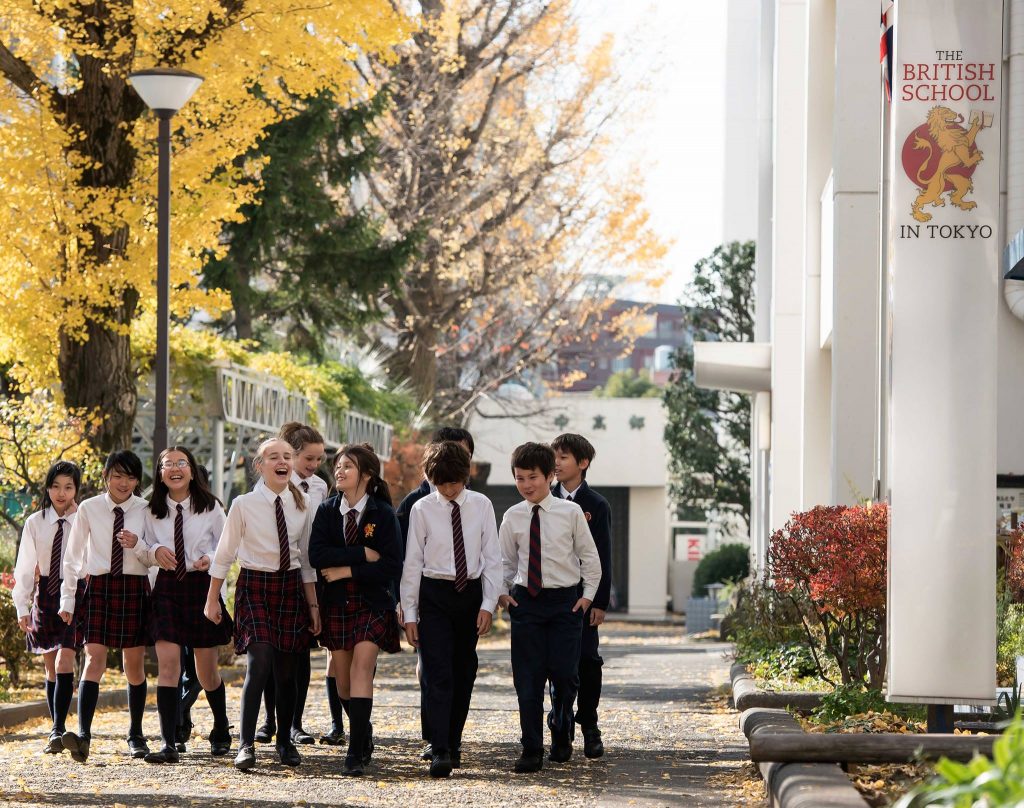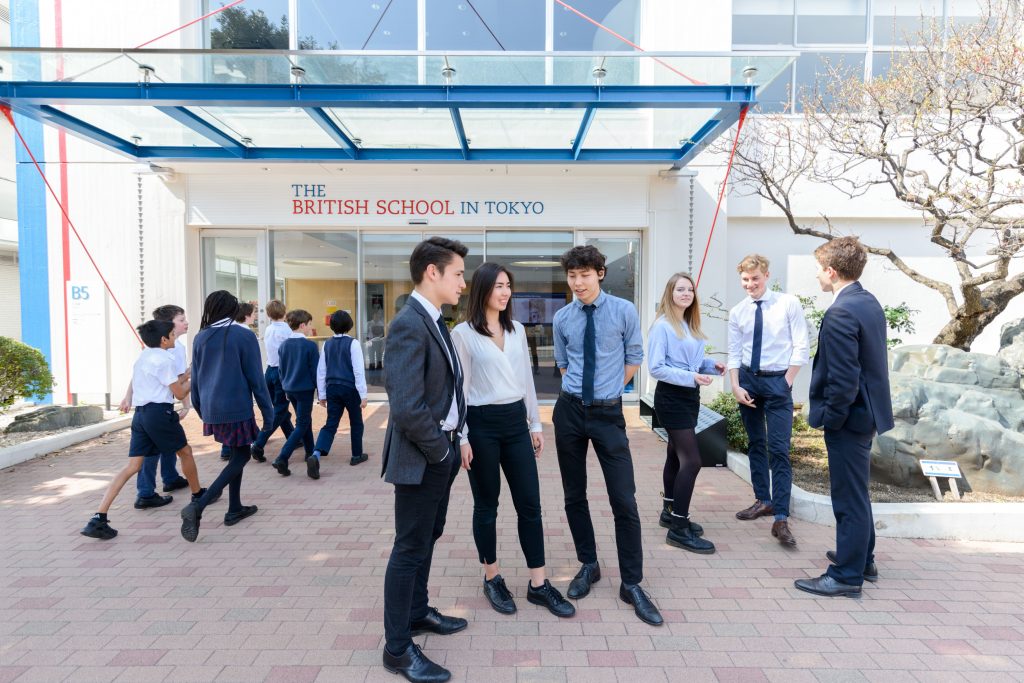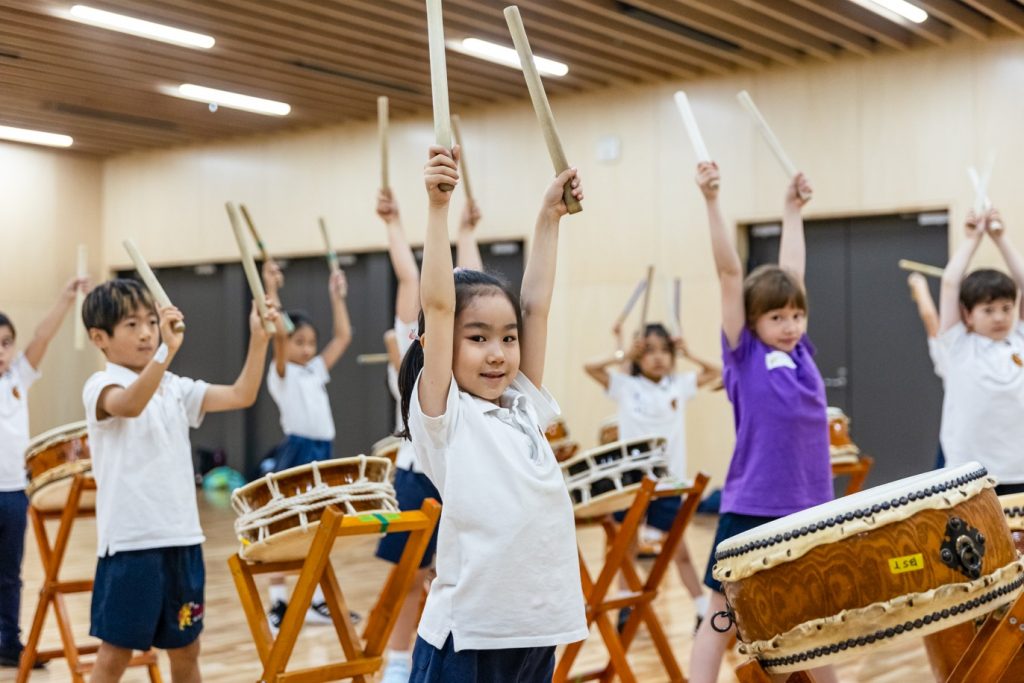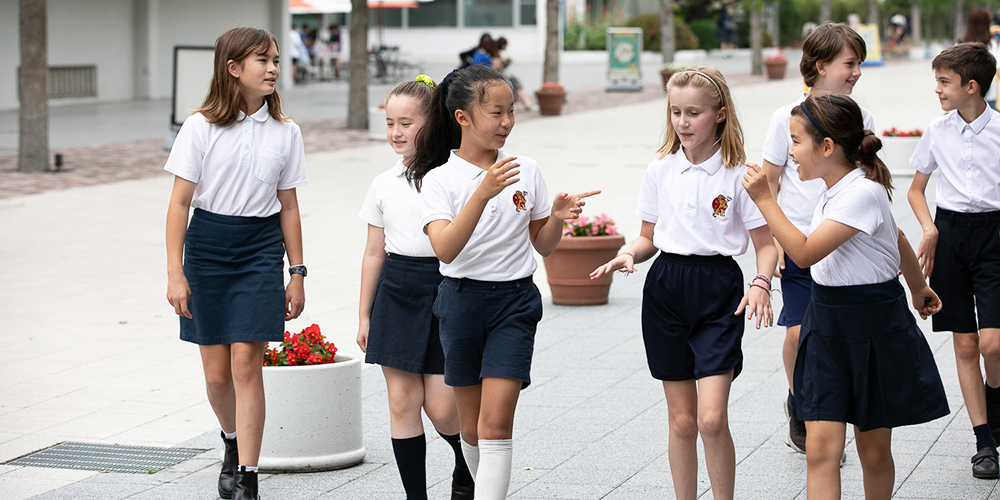
BST, or the British School in Tokyo, is located across two campuses in Shibuya and Showa. It follows the English progression and is divided into a Primary School, from Nursery at age 3 to Year 6 at age 11, and a Secondary School, from Year 7 at age 11 to Year 13 at age 18. Note that in the English progression, the year number is one bigger than the corresponding grade level in the US/International progression. For example, Year 5 would be 4th Grade, and Year 12 would be 11th Grade.
Established in 1989, the school has over 1000 students and 200 staff. It is rated as “Excellent” by the International Schools Inspectorate (ISI) in all areas. BST is a non-selective school but has still developed a strong reputation for high standards of robust, holistic education.

Although BST is a non-selective school, waiting pools exist for most year groups. The school operates a rolling waiting pool system and if students are unable to gain entry at their preferred timing, their applications stay in the waiting pools.
BST participates in the “Corporate Contribution Program (CCP),” which can provide a potentially cost effective alternative to paying Enrolment and Tuition fees. Participation in the CCP removes the additional income taxes that are normally imposed on the income of parents whose employers undertake to cover their children’s school fees in Japan. Corporations that participate in the CCP, by making an agreed contribution, enable the school to fund scholarships which are awarded to the dependent children of the companies’ employees. These scholarships are not taxable as personal income in Japan.
BST offers a broad curriculum based on the National Curriculum for England, but adapted to meet the needs of a diverse student body in Japan. The English academic progression narrows earlier than the US standard progression, meaning that students have to be prepared to begin focusing on certain areas of study as early as 14, but particularly at 16 with the selection of A-Levels. Subject matter studied by pupils is based around the Key Stages of the National Curriculum for England:
The focus of Key Stage 4 is IGCSE (International Certificate of Secondary Education) qualifications, rigorous 2 year linear programmes of study where students learn from curricula specified by exam boards and then sit a number of externally assessed exams at the end of Year 11.
At BST, every student must take Mathematics, English Language, English Literature, one Modern Language (Japanese, Spanish or French), Physical Education and two or three Sciences at IGCSE level. Then, they choose an additional three subjects from the list below:
Note that the IGCSEs you select will likely have implications for the A-level options available to you in Sixth Form. Put differently, if you want to know you want to study a specific subject at A-Level, make sure you have taken the necessary prerequisites at IGCSE.
The focus of Key Stage 5, or Sixth Form, is A-Level qualifications. Similar to IGCSEs, these are 2 year linear programmes with curricula specified by exams boards. Unlike IGCSEs, A-Levels are much more challenging, and student’s typically only take 3 A-Levels.
The A-Level courses currently offered by BTS are listed below:
Notably BST offers Computer Science, a big plus for students interested in getting practical experience with programming early in their education.

BST has a large variety of clubs encompassing sport, music, art, drama, and many more. However, engagement with clubs is usually smaller than that which you would find at a school following the US progression, as applications to UK universities place much less emphasis on school extracurriculars than those to US colleges.
Musical education is a core component of the primary school curriculum, and continues into secondary school in the form of instrumental lessons and extracurricular music activities. The unique BST Outdoors programme takes students from all year groups outside of the classroom and into the wilderness for adventurous skill building.
For leadership experience, students can run for election to a student council within their class throughout primary school, and in secondary school students have the opportunity to pursue leadership positions with more responsibility, as a number of students are appointed to different positions.
Like many schools in the United Kingdom (including the fictional ones like Hogwarts!) BST follows a house system. Each student is a member of a house and can be awarded points for their house through succeeding in academics, extracurriculars, and leadership.

IGCSE:
In 2020, 99.5% of grades were A*-C / 9-4 while 72.7% of grades were A*-A / 9-7 (Note that IGCSE examinations are in a transition phase. Some grades are awarded as numbers while others are still awarded as letters)
A-Level:
In 2020, 97.0% of grades were A*-C, while 72.7% of grades were A*-A
Both sets of results are very impressive when compared to averages for non-selective schools around the world following the English progression, demonstrating the strength of academic success at BST.
Recent graduates have gone on to attend many notable universities including Cambridge University, Imperial College London, University College London, Todai and Keio universities in Japan, the University of British Columbia, and New York University.
The information in this report comes from the experiences of BST students, the expertise of Tokyo Academics educators who work with students from BST on a regular basis, The Good Schools Guide International and The British School in Tokyo webpage.
Visit our Resource Center and gain access to recorded webinars, podcast episodes, school profiles, and more.